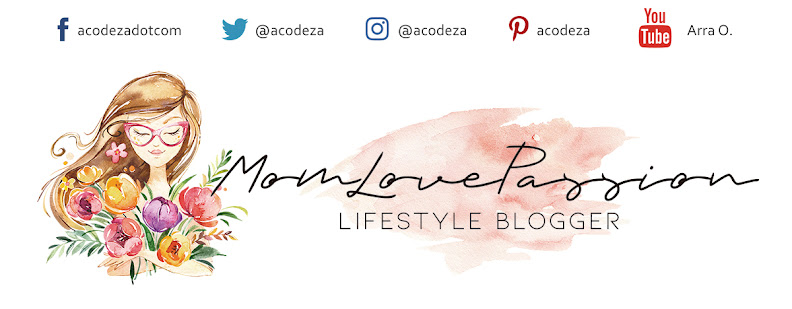When you hear people talking about anti-aging, it’s easy to assume that they’re talking about preserving youthful, wrinkle-free skin. While it’s excellent to feel confident about your complexion, it’s not just your skin that shows the signs of aging. Your health should be a priority, no matter whether you’re 25 or 75. The steps you take now can help you stay young, even when the years are ticking by, and the number of candles on the cake is increasing. You may know exactly how old you are to the day, but do you know your biological age? If you’re keen to stay forever young, here are some of the best ways you can protect your health and ensure you look and feel youthful for as long as possible.
What is your biological age?
Have you ever noticed that two people who are the same age could look completely different? Aging isn’t just about physical appearance. It’s also closely related to your health. If you were to undergo tests, a doctor would be able to give you a rough idea of your biological age, and this may be very different to your chronological age and to the biological age of other people who were born on the same day as you. The biological age is often an accurate indicator of how well the body is functioning. In most cases, lifestyle factors play an instrumental role in determining your biological age. The good news is that if your biological age is higher than your chronological age, there are ways you can turn back the clock and boost your health. It’s never too early to do this, so even if you’re a sprightly 20-something, there’s no harm in taking this advice on board.
Image courtesy of https://pixabay.com/en/clock-alarm-clock-bell-dial-651111/
Reducing your biological age and boosting your health
Activity levels
In an average week, how much exercise do you do? Do you have an active job? Does your daily routine involve cycling to work or going for a walk with the dog each evening? Inactivity is a contributor to premature aging. The statistics related to activity levels among adults in the US are alarming. According to research, only half of adults meet activity guidelines. Living a sedentary lifestyle puts you at higher risk of developing several severe and even life-threatening conditions, including heart disease, type 2 diabetes and some types of cancer.
If you don’t get enough exercise, it’s effortless to rectify this problem. Try wearing an activity tracker to keep count of how many steps you take each day, cycle to work or make time for an exercise class, a jog around the block or a brisk walk every evening. If you’re not a seasoned gym-goer, don’t panic. There’s no need to feel like you have to sign up for every class going or spend all your free time in the gym. If you don’t fancy lifting weights or doing crunches in front of an audience, there are so many activities you can try. Go dancing, bounce around at a trampoline park or join a local netball, hockey or soccer team.
Image by https://www.flickr.com/photos/sonstroem/34946911020
Getting your diet right
You often hear people saying you are what you eat. While this is not accurate, there is an element of truth in the statement. When it comes down to it, the types of foods that you eat have an impact on your health and wellbeing. You don’t have to avoid pizza and burgers at all costs and survive on leaves to stay young, but take care to make sure that your diet is balanced and it contains foods that contain essential vitamins and minerals. We seem to have an obsession with the connection between health and body weight, but the truth is that being very slim or thin isn’t always healthy. Being overweight carries a risk of complications, but so does being underweight. When you’re buying food or planning meals, consider the nutritional value, rather than thinking about losing a lot of weight in a short space of time. Keep an eye on your sugar and salt intake, eat plenty of fruit and vegetables and try and opt for whole grains whenever possible. If you can adopt healthy eating habits at an early age, this will stand you in good stead for when you get older.
If you look into healthy eating, you’ll come across articles and adverts about supplements, health foods and natural remedies like shilajit. Your diet should be able to provide you with everything you need, but in some cases, taking supplements can be beneficial. If you’re keen to boost your general health, you’re at risk of developing conditions, for example, osteoporosis, or you have an illness that prevents your body from being able to absorb or store specific nutrients, taking vitamins or supplements may be advisable. The best thing to do is check with your doctor. Many therapies and remedies can be beneficial out there, but they’re not always suitable or adequate.
Image source: https://pixabay.com/en/fruit-free-vegetables-healthy-2198378/
Stress
Have you ever noticed that you seem to age rapidly when you’re under pressure, or you’re stressed out? Just as stress affects your physical appearance, it can also change the way your body works. Stress is a very common problem in the modern world, but there are ways to conquer it and try and minimize the impact of bouts of stress. If you’re prone to stress, it’s advisable to try some self-help techniques that can reduce stress levels before the situation gets worse. If you can spot early warning signs and act quickly, this will prevent severe symptoms. Not every therapy works for everyone, but remedies and techniques that are often recommended for stress include exercise, particular activities like Pilates and yoga, meditation, creative activities and taking time out. Some people also find spending time with pets therapeutic, and many find it helpful to talk, either to a friend or relative or a therapist. In many cases, these methods will be effective, but if you’re still struggling and you’re worried that you can’t shift that weight on your shoulders, don’t hesitate to see a doctor.
Image taken from https://pixabay.com/en/people-woman-yoga-meditation-2562357/
Sleep
Most of us are aware of the difference a good night’s sleep can make to our appearance, our mood and our energy levels. It’s not always possible to get eight hours a night, but it’s essential to try and make sure you get enough rest. Your body needs sleep. Without rest, your body can’t recover, and you’ll be susceptible to illness, fatigue and mental health issues. Ideally, experts recommend between 7 and 9 hours per night. If you’re not getting enough sleep, try and adjust your routine to allow more time for rest. Many of us wait until we’re dropping off in front of the TV to think about going to bed. If this sounds familiar, it probably means that you’re going to bed too late, so set yourself an earlier bedtime and stick to it. If you’re finding it difficult to get to sleep on a regular basis, speak to your doctor.
Image by https://pixabay.com/en/people-woman-sleep-2537324/
Smoking and alcohol
When it comes to premature aging, your lifestyle choices have a significant impact. Smoking damages almost every organ in the body and it increases the risk of life-threatening illnesses such as cancer and heart disease. Smoking also ages the skin, stains the teeth and affects bone density so you may find that you look and feel older. Alcohol is another factor that can influence the rate of aging. While there’s nothing wrong with having a glass of wine or a cocktail from time to time, excessive drinking can put you at risk of kidney and liver damage and high blood pressure and increase the risk of strokes, heart attacks and some forms of cancer. The recommended intake of alcohol for US adults is 1 drink per day for women and 2 drinks for men. If you are drinking too much or you’d like help with quitting smoking, arrange to see your doctor.
Image via https://www.pexels.com/photo/cigar-cigarette-smoke-macro-70088/
Hydration
Staying hydrated is essential for many reasons. If you’ve ever been dehydrated, you’ll know that it has a dramatic impact on the way you look, as well as how you feel. Dehydration makes the skin look tired, dull and dry and it can also increase your risk of headaches, muscle fatigue and low energy levels. If you don’t take enough fluid on board, you may find that you feel dizzy and your blood pressure may drop. If you’re guilty of not drinking enough, carry a water bottle around with you and make sure you take regular breaks to grab a drink throughout the day.
Image courtesy of https://www.flickr.com/photos/aquamech-utah/24776493480
It’s not possible to prevent aging or put birthdays on hold, but it is possible to reduce your biological age. If you make the right choices, you look after your body, and you understand what’s good for you, you could make a fantastic difference to your future health and wellbeing, even if you’re only a spring chicken in your 20’s or 30’s. It’s never too early to start putting your health first.








That is a very good tip particularly to those fresh to the blogosphere.
ReplyDeleteShort but very precise info… Many thanks for sharing this one.
A must read post!